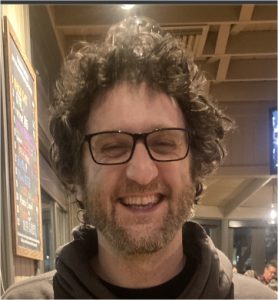Investigation
Industry Groups Worked to Expand Wisconsin Bill Meant for Small Dairies
Factory Farms•7 min read
Explainer
Unfortunately, Trump’s policies as president often had the opposite result.


Words by Seth Millstein
Shortly after Robert F. Kennedy Jr. ended his presidential campaign and endorsed Donald Trump’s, the duo launched a slogan: “Make America Healthy Again.” The former has even filed a trademark application to cover sales of merchandise like stickers and hoodies. Kennedy has proposed a variety measures that he says will accomplish this, and Trump has nodded to some of them in his recent speeches. But what does Trump and RFK’s “Make America Healthy Again” slogan actually mean, in policy terms?
Kennedy has done most of the heavy lifting in terms of concrete policy proposals related to the slogan “Make America Healthy Again.” It should be stressed that Trump himself has not actually committed himself to enacting or pursuing these policies. He has spoken the words “make America healthy again,” accepted Kennedy’s endorsement and spoken broadly about some of the health issues Kennedy has championed. But make no mistake: This is a list of Kennedy’s policy proposals, not Trump’s.
These policies include, but are not limited to:
As an environmental lawyer, Kennedy has long targeted powerful industries and lax government regulations. Many of his proposals, however, are not based on science, and have in fact been thoroughly debunked. As a former colleague of his told the New York Times in 2000, “I think he separates himself from good science at times in order to aggressively pursue an issue and win.”
“I absolutely did not, and do not, trust him,” another former colleague, Robert Boyle, said in 2014. “He shoots from the hip. Anything that comes into Bobby’s fevered mind becomes a fact.”
But in addition to all of this, Trump’s own record on health and food policy does not align with Kennedy’s vision for a more healthy America. More often than not, Trump implemented policies that are the exact opposite of what Kennedy is proposing.
There’s one big reason to doubt Trump’s commitment to the “Make America Healthy Again” agenda: his own policy record as president.
In his Make America Healthy Again manifesto, Kennedy criticizes America for allowing the use of dozens of pesticides that are banned in the European Union, and proposes that the next president “revisit” current pesticide and chemical-use standards.
“We’re going to get toxic chemicals out of our environment, and we’re going to get them out of our food supply,” Trump said at a campaign stop in Pennsylvania. “We’re going to get them out of our bodies.”
As president, Trump’s EPA repeatedly blocked initiatives that would have banned toxic pesticides, and approved over 100 products that are banned elsewhere in the world.
Under Trump, the EPA actively blocked a proposal that would have banned chlorpyrifos, a pesticide that some studies have linked to “memory problems and lower IQs” in children, as well as reduced breathing capacity. Ironically enough, Kennedy himself has repeatedly singled-out chlorpyrifos by name as an example of an especially harmful pesticide that should be banned, though he’s been conspicuously quiet about it since endorsing Trump.
That’s not all. Toward the end of the Obama administration, the EPA announced plans to ban three other chemicals: trichloroethylene, NMP and methylene chloride. At certain exposure levels, these three chemicals have been found to cause miscarriages, reduce fertility and damage the liver, kidneys, immune system and nervous system. When Trump took office, he withdrew the Obama-era plans, and allowed the chemicals to remain in use. (A proposal to ban NMP was made again in 2024, after Trump left office.)
Despite Kennedy’s endorsement, nothing in Trump’s policy record suggests that he will take steps to ban harmful chemicals and pesticides. If anything, it suggests the exact opposite.
One of the main purposes of the USDA is to support the American agriculture sector, and one way it does this is by giving various forms of financial aid, also known as crop subsidies, to American farmers. The USDA hands out around $30 billion every year in crop subsidies, according to the Cato Institute.
While the phrase “crop subsidies” might conjure up images of lush fields and fruit trees, nearly two-thirds of farm subsidies go toward feed for livestock (along with tobacco and cotton), while only four percent go to fruit and vegetable farmers. This has been the case for a while — not just under Trump, though there is a persistent misconception about the role subsidies play in boosting healthy diets.
“Reform crop subsidies,” Kennedy wrote in his Make America Healthy Again manifesto. “They make corn, soybeans and wheat artificially cheap, so those crops end up in many processed forms.” Though this line of thinking is often repeated by many, the numbers don’t actually add up. Corn, soy and wheat aren’t ‘artificially’ cheap thanks to subsidies. They simply are cheaper to grow than, say, tomatoes or strawberries, among other fruits and vegetables.
Still, during his presidency, Trump significantly increased crop subsidies. This was initially a matter of damage control: earlier in his presidency, Trump started a trade war with China and other countries, which led those countries to impose tariffs on U.S. agricultural imports.
These tariffs wrought havoc on American farmers. Agricultural sales to China from the U.S. fell by $10 billion in two years, and farm bankruptcies increased by 20 percent. In an attempt to stem the bleeding, the Trump administration increased federal subsidies to farmers by about $10 billion in 2019 from the year before.
Then came the COVID-19 pandemic, which prompted the Trump administration to increase farm subsidies even more. Trump’s USDA established various programs to help farms make it through the pandemic — some of which essentially amounted to handing out blank checks — and as a result, crop subsidies jumped from $24 billion in 2019 to $33 billion in 2020.
In total, the Trump administration handed out more crop subsidies than any other administration — payments that overwhelmingly went to the largest farms and agricultural producers. For example, the American branch of JBS, the world’s largest meat-processing company, received $67 billion in farm bailout funds, while many small- and medium-sized farms received no money at all. Ultimately, two-thirds of Trump’s farm payments went to the top 10 percent of producers.
“I think the USDA takes their mandate to promote American agriculture very seriously, and they mean a very specific thing by ‘American agriculture,’” Andrew deCoriolis, Executive Director of Farm Forward, tells Sentient. “They mean big, big food and meat companies. I don’t think they take their mandate to protect consumers, or protect smaller farmers and ranchers, seriously.”
“[Around] 70 or 77 percent of school lunches are processed foods,” Kennedy said in August. “There’s no vegetables. There’s nothing that you would want to eat.” Again, Kennedy is correct that school lunches in America are disproportionately made up of meats and processed foods, not fruits and vegetables.
But as with toxic chemicals and crop subsidies, Trump’s actions on school lunches as president were more or less the opposite of what Kennedy is proposing. Under Trump, the USDA proposed a series of rules to lower the fruit and vegetable requirements for public school lunches, decrease federal oversight of school lunch programs, increase the maximum sodium content allowed in school lunches and allow schools to sell more processed foods to students.
Some of these proposals were thrown out in court; others were undone by the Biden administration or never implemented, and some were ultimately enacted and are now on the books.
Regardless, Trump’s actions on school lunches do not suggest that he’ll take steps to replace processed foods in school lunches with fruits and vegetables.
Though Kennedy has proposed a bevy of specific ways Trump can “make America healthy again,” Trump himself largely speaks in generalities when discussing the topic, and hasn’t endorsed many concrete policies.
One thing that Trump has proposed is the creation of a committee to investigate the sources of chronic illness in children, an issue Kennedy speaks about frequently.
“I will establish a special Presidential Commission of independent minds who are not bought and paid for by Big Pharma, and I will charge them with investigating what is causing the decades-long increase in chronic illnesses,” Trump said in a video on his website. “I understand Big Pharma, I believe, better than anyone else. I know where they’re coming from. And then, I will ask them to publish recommendations for how every American child can have a safe and healthy childhood.”
Avoiding Big Pharma sounds great; but in reality, when he was president, Trump appointed the former president of Lilly USA, a pharmaceutical company, to head the Department of Health and Human Services. He also appointed more lobbyists to his administration in his four years than Obama did in eight.
Trump has also said that he “probably would” appoint Kennedy to a position in his administration if elected in November. It’s unclear what appointment he might receive, and if it’s one that requires Senate confirmation, there’s no guarantee he’ll be able to get the votes.
However, Trump has already appointed Kennedy to his transition team, which would give him some degree of influence over the staffing of a second Trump administration, even if he himself doesn’t get a cabinet appointment.
This has caused worry among some public health experts, as Kennedy has a history of promoting debunked theories about health, including the claim that vaccines cause autism and cancer. Kennedy has also suggested that COVID-19 was “ethnically targeted” to spare Jewish and Chinese people from the disease, and that chemicals in water might be “making” children transgender.
To be clear, these are things that Kennedy has said, not Trump. But they are relevant to the prospects of a second Trump term, as Kennedy may well be in a position to exert significant influence over Trump’s policies, should he win a second term.
Kennedy has pointed out some legitimate problems with America’s health policies, and plenty of his criticisms are substantive and fact-based. His belief that Trump will attempt to fix these problems if elected to a second term, however, is not.
There’s no getting around it: as president, Trump sought to deregulate and loosen federal health and food safety standards time and time again. He did this through multiple federal agencies, and several of these actions actively prevented the specific outcomes Kennedy supports.
Making Americans healthy is a noble and necessary goal, but it’s difficult to look at the evidence and conclude that Trump will pursue that goal in any meaningful way.